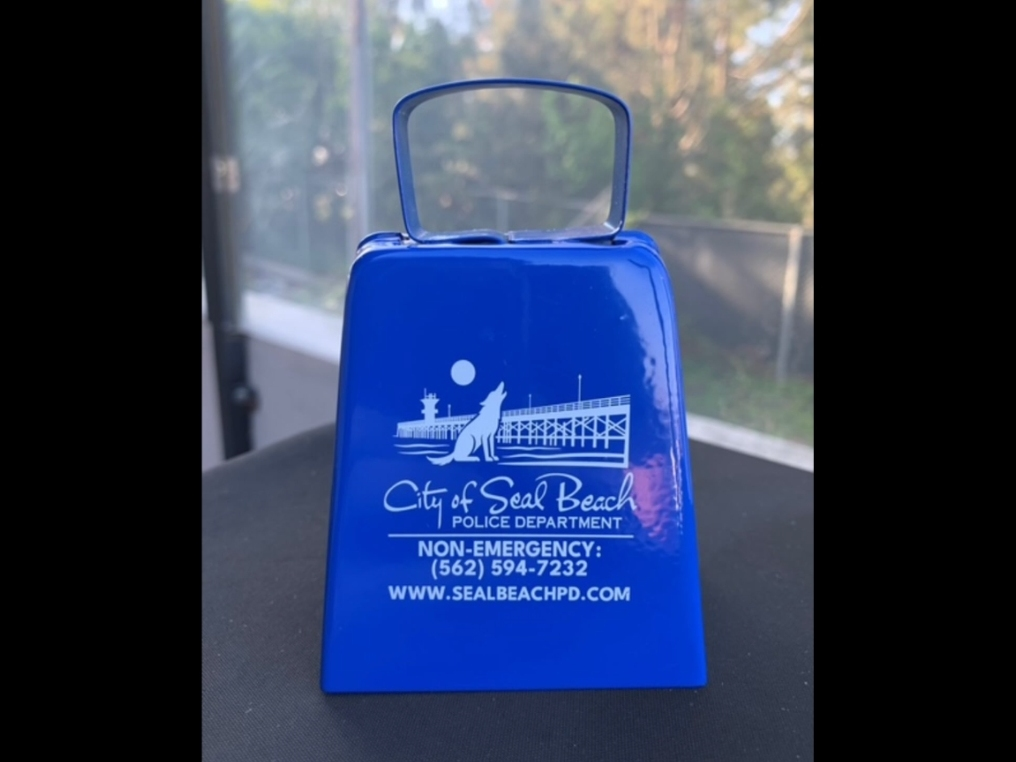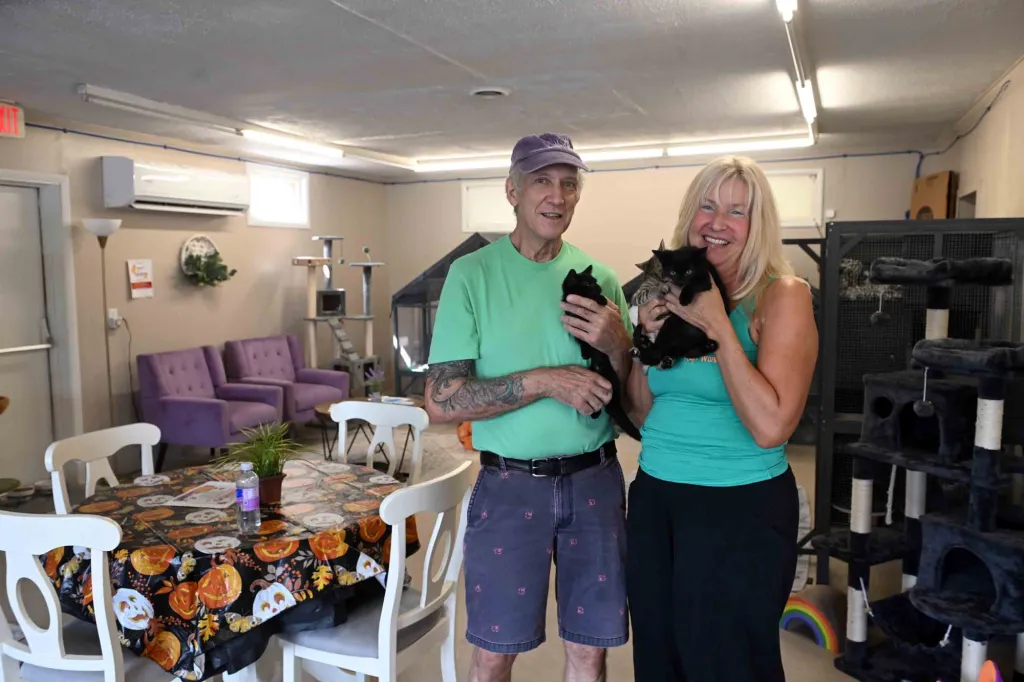
The “hazing tool” was adopted from a Cal State Long Beach professor and leading coyote researcher.
SEAL BEACH, CA — A new anti-coyote “hazing tool” is changing the way some Orange County residents interact with wildlife around them.
In Seal Beach, residents may have noticed blue cowbells scattered across the police department’s front lobby free for the taking — the department isn’t starting a community band, Lt. Julia Clasby told Patch — the cowbells are a part of an effort to safely coexist with neighborhood coyotes.
“The idea came through our partnership with Dr. Ted Stankowich, a professor at Cal State Long Beach who specializes in urban coyote behavior,” Clasby said. “Dr. Stankowich has presented to our city council and advised that while coyotes are a permanent part of our urban environment, communities can learn to coexist through consistent hazing.”
Hazing doesn’t harm animals, Clasby said — but it does startle them so they keep a healthy distance from people. For the past several weeks, the department has supplied blue cowbells to residents looking for anti-coyote reinforcement measures.
“While we can’t remove them, we can manage interactions and keep our community safe,” Clasby said.
The program has been so successful that the department has placed an order for 500 more cowbells, Clasby said.
“We are hearing from residents that the cowbells give them confidence when they’re out walking or in their yards,” Clasby said. “While this program is still new, early anecdotal feedback is positive. Cowbells are just one part of our broader hazing strategy, and the more consistently they’re used throughout the community, the more effective they become in teaching coyotes to keep their distance.”



